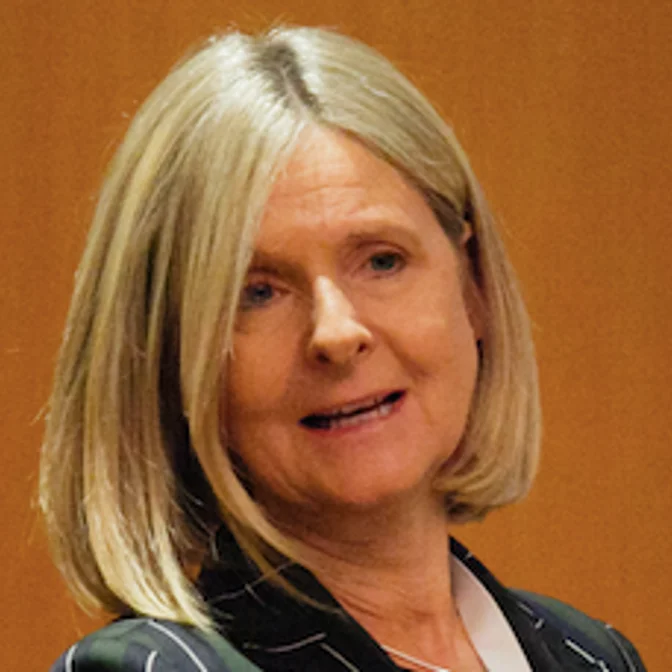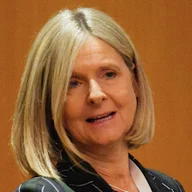In celebration of National Mentoring Day on 27 October, we spoke with Emma Stapleton, Consultant ENT Surgeon and incoming RCSEd Council Member, and Lisa Hadfield-Law, a seasoned mentor trainer, about the RCSEd Mentoring Scheme. Together, they share insights into the importance of mentoring in surgery, how the College is supporting both mentors and mentees, and why strong mentoring relationships are vital to professional development and wellbeing in the surgical profession.
Emma Stapleton
Consultant Surgeon and incoming RCSEd Council Member
Emma is a Consultant Otolaryngologist at the Manchester Royal Infirmary and an incoming RCSEd Council member.

Lisa Hadfield-Law
Mentor Trainer
Having spent 20 years in clinical practice and 20 years in clinical education, Lisa has managed an emergency/orthopaedic/trauma service at a teaching hospital and has insight into the circumstances and challenges facing clinical teams.

Lisa: Why might mentoring appeal to our readers, Emma?
Emma: Mentoring is a crucial process, and we need to maximise its potential, not just as an intervention for surgeons in difficulty or at times of crisis. Whilst it can be helpful in those situations, mentoring is for everyone. It's a method that is useful – essential, even – for the development of all surgeons, from the highest performers to those struggling, and all in between. It's especially useful during times of career transition, such as moving into a new grade or role, and is recommended by the GMC for doctors during these periods.
Lisa: Why did you train as a mentor and how?
Emma: I've undertaken several different mentor training programmes, and I’ve been training mentors for about 5 years. I've also trained as a coach and mentor supervisor, and hold a formal qualification in this field from the OCM (Oxford Coaching and Mentoring). Whilst mentors offer their time and support to mentees, they also need to be supported. The challenges of being a mentor can take people by surprise, and having support and supervision as a mentor, especially within a professional scheme, is essential for its safety and sustainability.
The training courses I attended were different and both extremely useful. Mentor training is essential for providing mentors with insight into the principles of mentoring and for understanding how to assume the mentorship role responsibly and effectively, often by using a model or framework. I use a framework, but my mentees can't always tell I'm doing so. Once mentors get the hang of mentoring, it's more of a core set of principles embedded in a very personal and human conversation.
Attempting to mentor without training and without a framework often veers into advice-giving, patronage, or conversations which are less useful than with a trained mentor. We also know that mentoring programmes that train and support their mentors are more successful and sustainable.
Lisa: What is the Royal College of Surgeons of Edinburgh Mentoring Scheme for?
Emma: RCSEd have been planning their surgical mentoring scheme for a long time, aiming to create an effective and sustainable initiative. We found that similar issues were being encountered by colleagues at all career stages. We knew that mentoring, facilitated professionally and responsibly, enables colleagues to overcome challenges, empowering both the mentor and the mentee. Initially, we built the scheme to provide senior trainees and new consultants with access to mentorship from a trained mentor, within a framework of professional guidance and governance. As the scheme develops and grows, we will open it up to other groups within our profession, so more colleagues can benefit from access to trained mentors within a professional programme.
Lisa: What isn't it for?
Emma: Mentoring has some overlaps with teaching, supervision, and especially with coaching, but it's a separate entity from these. Mentoring is aimed at personal development, and not at the acquisition of knowledge or surgical skills. People often confuse mentoring with career guidance; although they can overlap, mentoring is much more than just giving advice. It focuses on empowering the mentee, often with a mentor whose experience in that domain can be beneficial. Additionally, mentoring is distinct from sponsorship or patronage. Many surgeons refer to a senior colleague who has offered them sponsorship or patronage as a 'mentor', but the support offered in this context is different from mentoring.
As an example, I had a wonderful academic trainee who referred to me as her mentor when she delivered presentations about career development, using the publications, presentations and prizes she'd achieved during her time with me, as a mark of a great mentor. But that label was not accurate! I was not her mentor, but her academic supervisor. That's not to say we didn't have mentoring conversations – we had many of them. But they were incidental; the value of a great mentor cannot be measured in the same way as academic achievements.
Lisa: What form does the mentoring engagement take?
Emma: Within the RCSEd Surgical Mentoring Scheme, mentees can sign up via our mentoring portal, where they can select (match with) a trained mentor. Not all mentors are available on the platform - if a mentor already has two active relationships, they will not appear as potential matches at that time. Once the mentor accepts the match, the pair are free to chat via the platform and to schedule mentoring conversations or meetings - usually three. These can be conducted via the platform or independently. The trained mentor will know how to plan and structure these meetings with you, so there is no need to prepare excessively, though there are some resources available on the mentoring platform to enable you to make the most of your meetings.
Lisa: How do mentees access the scheme?
Emma: If you're already an RCSEd member or fellow, you can sign up here and start the process by selecting a mentor.
Lisa: How do mentors join the scheme?
Emma: All mentors on our scheme are trained. Potential mentors can attend our RCSEd Mentor Development Programme and subsequently sign up as a mentor. You can find out more here.
Emma: Lisa, how did you get involved with the RCSEd Mentor Development Programme?
Lisa: Having directed colleagues towards the scheme and found it to be a superb platform with even more potential, it was clear that more mentors were required with other professional experiences and with representation from all surgical and dental specialities. It's hard, though, for clinicians to take time away from home and work to travel to Edinburgh with all the costs associated with both time and money. The College were keen to create accessible online training to widen the access for potential mentors, to reduce the costs associated for everyone and to future-proof the scheme.
Emma: That sounds great, accessibility is key and you already have considerable experience with similar programmes!
Lisa: I've been running successful online programmes for College for some time: The Future Leaders Programme and the Foundations in Leadership programme. I trained as a Virtual Teacher with the University of California and the University of London nearly a decade ago. 'Necessity is the mother of invention'. I had been appointed to train 3000 assigned educational supervisors in one surgical speciality, but with no budget to do so. The initial driver was financial, but there were some unintended consequences. Those with responsibilities at home and work, who couldn't travel, could join. Those who were based overseas on fellowships, could join. Those who are more reserved and shyer found engaging from familiar surroundings preferable. I have also run mentor and coach development programmes for surgeons and dentists for the last 25 years.
Emma: Can we talk about the difference between face-to-face and virtual learning?
Lisa: Most programmes have been run face-to-face, so we have polished our skills in this arena and have had a great deal of success. If you examine the personality traits of trainers (which I have, with approximately 3,000 of them worldwide), those drawn to training roles tend to be more extroverted. Extroverts tend to really enjoy interacting with others in real life, as that’s where they get their energy from. However, our colleagues are also distributed along the spectrum towards introversion, and others are socially shy. So, for them, online learning may be considered better, and they may be more likely to engage. The bottom line is that if you are willing to develop new skills, you can engage just as effectively virtually, but it does need a set of new skills and some practice.
Emma: Do you think the human connection can be lost in virtual learning?
Lisa: If you think about it, we can perceive facial expressions and body language more effectively online in some ways. Our faces are much closer to each other than in real life, so the slightest change in facial expression or fidget is much more noticeable. Initially, we might miss things while we are learning skills, and if we’re new to some of the technical aspects, but it’s a set of learned skills. I think I am probably more effective online than I am in real life now, partly because I do it more often.
Emma: To conclude our chat, can you tell us how the online Mentor Development Programme works?
Lisa: We have created a Learning Log, a simple Word document with embedded lectures, demonstrations, and associated activities for the potential mentor to complete over a month before we meet live. Bespoke feedback will be provided, and then we will meet for two 3-hour sessions in the evening. At the live sessions, we will run small groups to practice mentoring skills, discuss challenges, and share ideas.
Once these three elements are all complete, mentors will be offered an opportunity for supervised practice. Those willing to join the RCSEd Mentoring Scheme for two years will be given priority and will be trained free of charge.



